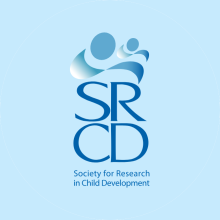January 2010 Spotlight on the SRCD Policy Fellow: Ann Rivera, Ph.D.
2009-2010 Federal Executive Branch Policy Fellow
I am very fortunate to be serving a second year as a fellow in the Office of Planning, Research and Evaluation (OPRE) of the Administration for Children and Families (ACF) in the Department of Health and Human Services (HHS). Not only is this second year allowing me to experience the evolution of projects that were merely nascent this time last year, but it coincides with tremendous changes in leadership and direction at many levels in Washington, DC and nationally. During my first year as a fellow, I began to see specific ways in which developmental science informs government policies. Since August, my experience and appreciation of the possible ways for science to inform policy (and vice versa) has expanded greatly in a policy environment where science is genuinely valued and applied to decision-making.
Among the projects that I continue to co-lead are the Child Care Research Scholars dissertation grant program and the Center for Early Care and Education Research: Dual Language Learners. My responsibilities on these projects last year centered on the development of funding announcements and the review of proposals. These tasks taught me more than I could have expected about the identification of programmatic concerns and pertinent research questions, the formation of public funding opportunities for research that responds to multiple stakeholders, and the essentials of successful applications for federal research funding. This year, my responsibilities turn to doing as much as possible to ensure that the funded projects yield information that reflects the intentions of the respective funding announcements, and in turn, inform the relevant federal programs. On a practical level, this involves not only reading research plans, progress reports, and related research, but also seeking out and listening to the questions and concerns arising from the Child Care Bureau and Office of Head Start and their programs.
The need for strong research that can guide policies is great in many areas, especially in the realm of young children who are dual language learners (DLLs). I have been pleased by the commitment I have seen at various levels of the federal government to build a strong knowledge base and to carefully test theories and evaluate strategies, rather than rushing to premature conclusions about what works best for children and families. I continue to assist in efforts throughout OPRE to understand and assess the experiences of DLL children and their families in ACF programs more accurately and thoughtfully. One such effort is a report mandated by Congress to describe the experiences of DLLs who are participating in Head Start.
In my second fellowship year, I have become involved in OPRE’s efforts to strengthen the science of dissemination and implementation. One end of these efforts is becoming more familiar with the evidence base concerning the dissemination and implementation of best practices in social services, and the other end is engaging ACF program offices to understand what questions they have related to these topics. In this area, the projects that I am most involved in focus on improving the dissemination of social science research to policymakers, program administrators, and practitioners. Here again, on a practical level, I find that I am trying to familiarize myself with as much of the knowledge base and current thinking as possible, while also trying to consider carefully (in one form or another) the questions of our partners in the program offices. This balancing act – between evidence and relevance – is part of every project I have been involved in during the fellowship and is a skill that will require continued attention and cultivation throughout my career.
